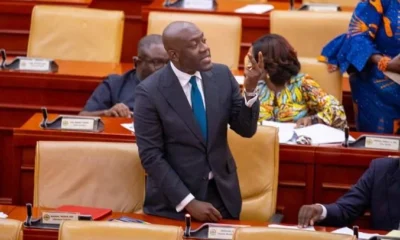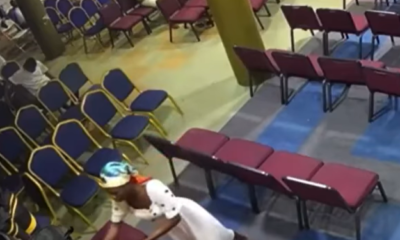Published
5 years agoon
By
Adubianews
Dean of the School of Performing Arts at the University of Ghana, Professor Kofi Agyekum, popularly known as Opanyin Agyekum has vehemently resented the gruesome murder act by two teenagers at Kasoa in the Central Region.
The two teenagers named Felix Nyarko, 15, and Nicholas Kini, 17, allegedly murdered a 10-year-old boy at Lamptey Mills in Kasoa on Saturday.
The deceased, Ishmael Mensah, was a Class Four pupil of the Maranatha School.
It is believed the teenagers committed the ghastly act for ritual money purposes.
Making a submission on Peace FM’s “Kokrokoo” programme, Opanyin Agyekum bemoaned the teenagers’ crime blaming it on the moral corruption of the society.
According to him, the nation has lost the relevance of its cultural values which guide and govern the behaviour of people.
He also slammed the teenagers over the insatiable quest to kill a human for money.
“What at all are they looking for?. . For how long did they nurture the thought to commit murder? How many hours or days went into their planning?” he queried.
Opanyin Agyekum called for a revolution in society in order to churn out good teenagers and youth.
“We need a cultural revolution,” he stressed.
He further left a moral lesson for the Ghanaian youth saying “a good name is better than riches”.


Asiedu Nketia Uses NDC Thank You Tour to Collect Feedback on Government


Speaker Urges Executive to Grant Parliament Permanent Land


Finance Expert Warns Cocoa Reforms Could Worsen COCOBOD Debt


Jinapor Swears In New VRA Resettlement Trust Fund Board


Minority Demands Dismissal of COCOBOD CEO Over Cocoa Price Crisis


OSP Questions Baba Jamal Over Alleged Vote-Buying in Ayawaso East Primary


Police Arrest Woman Over Fire Incident at Alpha Hour Founder’s Church


NRSA: Commercial Tricycles Still Illegal Under Ghana’s Road Traffic Laws


NADMO Launches Rainy Season Safety Campaign in Fanteakwa South Markets

























